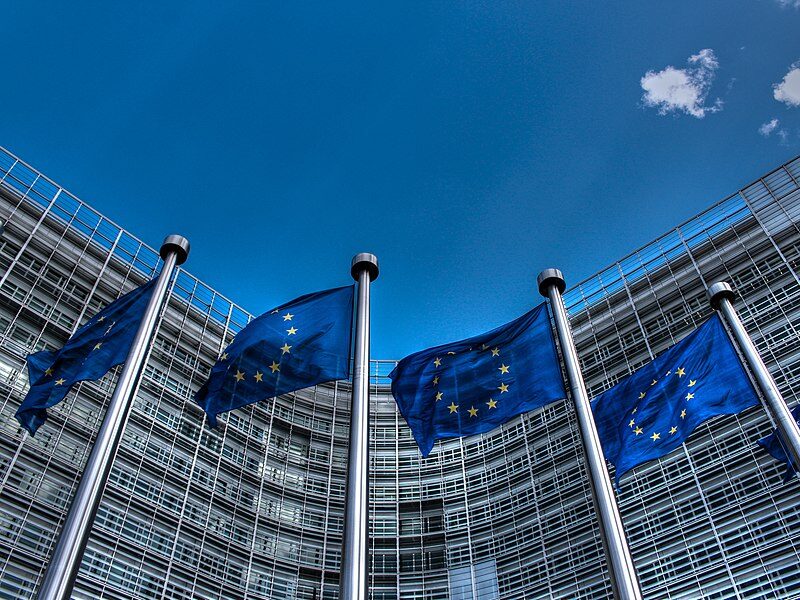In an unprecedented visit to Kyiv on June 16th, the leaders of France, Italy, Germany, and Romania expressed, to the sound of air sirens, a full-blooded support for the Ukrainian cause. This was the first time Germany, Italy, and France stated their approval of Ukraine’s bid for E.U. candidacy, and came eight days before the E.U. accepted both Ukraine and Moldova’s candidacy bids. E.U. candidate status affords both nations a greater degree of official E.U. recognition of their sovereignty. Full-blown membership may provide them with military support.
The process by which a country is granted E.U. membership is an arduous one. It took Bulgaria, Romania and Croatia 10 to 12 years to do so. Even should the European Commission accelerate Ukraine through the procedure determining its suitability for membership (usually based on the country’s human rights record, its commitment to democracy, and the degree to which it operates a free market economy), E.U. legislation requires that every current member state must also approve of new members.
It cannot be understated how urgently Europe requires solidarity and an actionable strategy in the face of Russian warmongering. If strategist Alexander Dugin’s philosophy of Eurasianism, which asserts that all territories of the former Soviet Union are part of one Russia and ought to be ruled by a single, totalitarian Russian Empire, is taken to be in any way characteristic of the regime – and Dugin has been referred to as “Putin’s brain” – the scope of Putin’s territorial ambition could extend beyond Ukraine.
On June 21st, Estonia claimed its airspace was violated for the first time by a Russian helicopter. According to Sky News, the Baltic state also insists that Russia regularly simulates missile strikes against it and conducts military exercises near their shared border. Tensions have also flared between Russia and Lithuania, with the latter recently blocking rail transit of sanctioned goods to the Russian city of Kaliningrad. And further south, countries in the Balkans fear Russian encroachment as their applications to the E.U. seem to stall with little progress.
The E.U. discussed expanding through the Western Balkans in May, at the 7th Annual Forum of the E.U. Strategy for the Adriatic and Ionian Region in Albania, where the Tirana Declaration expressing solidarity with Ukraine, was also signed. Speedy accession of countries like Albania and North Macedonia would undoubtedly provide a bulwark against Russian influence in the region.
Alongside E.U. enlargement and meaningful sanctions, Europe must also wean itself off Russian oil, gas, coal, and uranium. This will not be painless for Europe, as B.B.C. News reports that Russia supplied the E.U. with 40% of all its natural gas imports before the war. Governments may struggle to hold their nerve under the weight of rising costs and soaring inflation, especially in countries like Slovakia, Hungary, and Bulgaria which depend heavily on Russia for energy supplies. The E.U. plans to completely overcome its dependency on Russian energy before 2030 through its “REPowerEU” initiative and the Energy Performance of Buildings Directive. The former sets out Europe’s intent to seek out new suppliers, champion renewable sources, and invest in energy savings (though critics are wary of substituting Russian fuel with oil and gas from Gulf states like Qatar and Saudi Arabia, undemocratic countries with questionable human rights records of their own). The latter strives to de-carbonize the existing stock of European energy resources and make them more efficient through renovation work.
The E.U.’s response to Russian aggression could prove crucial in determining the war in Ukraine’s outcome. Swift accession for countries like Ukraine, Moldova, Estonia, Albania, and North Macedonia, coupled with a thorough-going effort to “re-power” the E.U., may be the only thing that curbs Putin’s ambition. The E.U.’s chance to prove its mettle is now.
- Iraq’s Parliament Building Falls: ‘Green Zone’ Breached By Al-Sadr Protestors - August 29, 2022
- President And Pariah: Biden Fist-Bumps Saudi Crown Prince - August 20, 2022
- The Assassination Of Shinzo Abe And Peace In Asia - August 13, 2022


